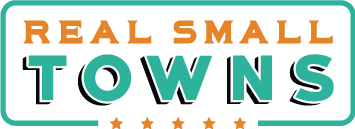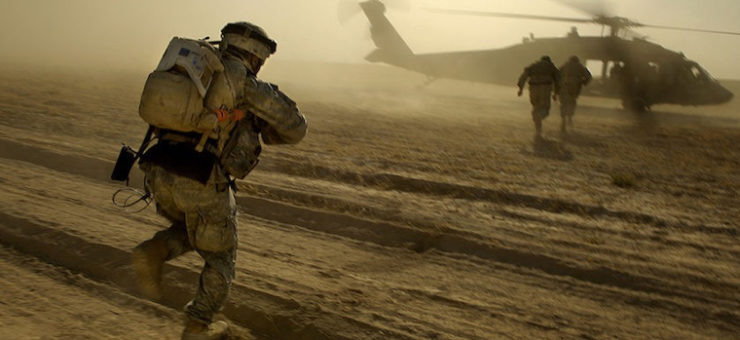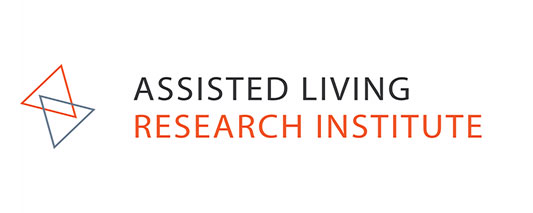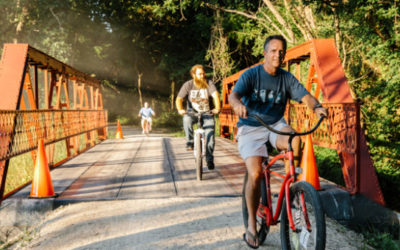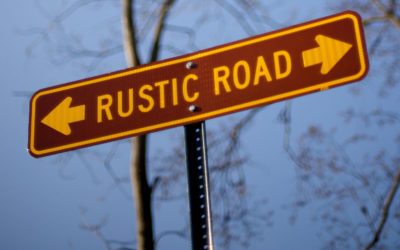This piece was first delivered as a Firestarter Talk at the 2018 National Rural Assembly where the theme was “Building Civic Courage.” The Rural Assembly is organized by The Center for Rural Strategies whose mission strives “to create better opportunities for small towns and rural communities by building coalitions, developing partnerships, leading public information campaigns, and advancing strategies that strengthen connections between rural and urban places.” Oestreich’s voice is needed now more than ever as she challenges the ever escalating polarization of our communities, country, and the world at large.
The Iraqi desert was so dark I couldn’t see my own hand in front of my face.
It was Christmas Eve night, when I found myself with my medic bag strapped to my back, running toward a wounded soldier who’d been ejected from a rolled semi-truck.
He was in bad shape, struggling to breathe.
After we loaded him into the back of the humvee, he looked up at me and said what I hoped no patient would ever say, ”I’m going to die now, tell my wife that I love her.”
As a medic, I knew he was probably right.
We were an hour away from camp and his lungs had collapsed from the impact of the accident.
He wasn’t going to make it to camp alive.
In a flash, I saw in my mind’s eye, a picture of us arriving at camp, on Christmas Eve night— him lifeless on the stretcher, and me with my arms wrapped around my knees sobbing because I had failed to keep him alive.
And that’s when I realized: even though he wasn’t an American soldier, even though in my wartime mindset he was enemy —if he died, something in me would die too.
We were connected to each other in an undeniable way. My well-being was intertwined in his well-being.
If he died, I would never be the same.
God was was with me in that humvee, helping me see past my own fear of the other, past my “us versus them” perspective, urging me to see this man as my brother. God was pleading with me to love this enemy, not hate him.
In that moment, I realized that I was part of something bigger —a human family that couldn’t be separated by nations, by fear, or by the flag that I wore on my uniform.

In that humvee, “us vs. them” became a false choice. We belonged to each other.
So in the middle of the Iraq war, with bombs and bullets flying, I stopped loading bullets into my gun.
I know it sounds crazy, but I found a new kind of freedom—the freedom to give instead of take, to sacrifice my own life instead of taking that of another. In that moment, I decided to fight for what every soldier wants: peace. But now I would fight with sacrifice instead of bullets. I decided to see the person in front of me as fully human rather than reducing him to my enemy.

Today, I’m waging peace with a bunch of friends who have made the same decision.
We are using the power of preemptive love to unmake violence and to heal hearts across enemy lines in Iraq and Syria. We show up on the frontlines of conflict—where the bombs and bullets are still flying—with emergency food, water and life saving medical care.
Violence is unmade, as ISIS-survivors and refugees are empowered to reclaim their lives from war by creating businesses that give them dignity over dependence. We go where no one else will go, to love the ones that no one else will love.
Because we refuse to let violence have the last word.

If WE can do it on the frontlines of the world’s most polarizing conflicts, in Iraq and Syria, then I believe we can also wage peace here: in our rural communities that are battling for their future.
My personal battle ensued when I returned home from war as a third generation Army Veteran, believing in something unfamiliar: a shared humanity that valued my enemy as much as myself. The military had been all I’d known, coming from a family and a community that embraced only one way to honor and serve our country. The week I left Iraq, we had a mini family reunion at Balad Air Force base when three of my cousins arrived in country for their deployment. I knew if I told them about my experience of removing the bullets from my gun I would be seen as “other”. I would lose being part of the “us” in my family. Trading my battlefield truth, for belonging, I stayed quiet for 10 years about my experience in Iraq. The tension I live with remains costly and painful for me to this day.
Which is why I’m compelled to ask myself —and you— this question, again and again:
“What if you didn’t have to choose between Democrats and Republicans? Between loving Christians or Muslims? Between being a soldier or a peacemaker? What if you could push back the false narrative of “Us vs. Them”?

Soldiers believe in peace. It is why we are willing to go to war. No one goes to war expecting more war. We believe peace is possible and it is worth fighting for. Preemptive Love invited me to embrace the idea that I wasn’t either a soldier OR a peacemaker. I was both. This empowered me to start showing up in my community and ignited me to move towards those on the other side of my political or religious trench. As I listened to them, people I once feared became friends: because fear cannot survive proximity. Presence no longer required agreement. I started to show up and care for my community in a whole new way when there was no more “them, but only an “US”.

So how do we choose civic courage? How do we build rural communities defined by their relentless hope?
Civic courage means we no longer accept the zero-sum world view of “us versus them”.
We refuse to let anyone tell us which communities are worth investing in and which are disposable. By confronting inequalities and injustices, we build sustainable communities worthy of our children’s vibrant future. When we refuse to see someone as “other” we create new stories, new possibilities between people at odds. These communities are unafraid of their differences because they are committed to working for each other’s well-being.
This means we don’t have to choose between rural thriving or urban growth, national security or refugees, protecting Black lives or Blue lives. We can choose them all.
I’m inviting you to wage peace in our rural communities. Live stories that will confuse your friends, make your faith community uncomfortable and your political party nervous. I’m inviting you to change our world one person at time… beginning with yourself. I’m inviting you to lead as courageous people who are unafraid of standing alongside someone you disagree with.
Civic courage means striking first with love, and asking questions later. It’s building a bridge by trusting someone who doesn’t already trust you. It’s choosing to listen to someone who is across the trenches from you.
I believe the only thing our communities need to thrive is all of us at the table, choosing to see the unshakeable goodness in each other. I believe veterans need a wider invitation to be more than only their soldier-story in their communities. I believe this future is possible.
I no longer accept that we cannot simultaneously be on the side of urban growth and thriving rural communities; climate care and economic growth, soldiers and peacemakers.
I don’t lean left or right. I lean forward, because that’s where love lives.

To support or learn more about the Preemptive Love Project, click here.
To read more from Diana Oestreich, click here.
To see video footage of Oestreich’s speech, follow this link to the Daily Yonder, where you will find a wide variety of stories related to rural life. The Daily Yonder is the journalistic blog put out by the Center for Rural Strategies.
